The University of Pittsburgh Press is a publisher with distinguished lists in a wide range of scholarly and cultural fields. They publish books for general readers, scholars, and students. The Press focuses on selected academic areas: Latin American studies, Russian and East European studies, Central Asian studies, composition and literacy studies, environmental studies, urban studies, the history of architecture and the built environment, and the history and philosophy of science, technology, and medicine. Their books about Pittsburgh and Pennsylvania include history, art, architecture, photography, biography, fiction, and guidebooks.
Their renowned Pitt Poetry Series represents many of the finest poets active today, as reflected in the many prestigious awards their work has garnered over the past four decades. In addition, the Press is home to the Agnes Lynch Starrett Poetry Prize, the Donald Hall Prize for Poetry, and, in rotation with other university presses, the Cave Canem Poetry Prize. They sponsor the prestigious Drue Heinz Literature Prize, which recognises the finest collective works of short fiction available in an international competition.

Format: Paperback
Pages: 296
ISBN: 9780822958970
Pub Date: 28 Dec 2005
Description:
The Practice of Politics in Postcolonial Brazil traces the history of high and low politics in nineteenth-century Brazil from the vantage point of the provincial capital of Porto Alegre. In the immediate postcolonial period, new ideas about citizenship and freedom were developing, and elites struggled for control of the state as the lower classes sought inclusion in political life. In a shift from the Liberal Party to Positivist or Conservative rule during the bloody Federalist Revolt of 1893–1895, new leaders sought to bring about a more balanced structure of government where the capitalist was sympathetic to the worker, and the worker more passive toward the elite.
This represented a complete change of opinions—a new regime of ideas. Termed a “scientific” approach by its proponents, the movement was based on historical process and would be brought about through civic education. Against the backdrop of the abolition of slavery and subsequent assimilation, the rise of European immigration, and industrialization, Kittleson investigates how “the people” shaped changing political ideologies and practices, and how through local struggles and changes in elite ideology, the lower classes in Porto Alegre won limited political inclusion that was denied elsewhere.
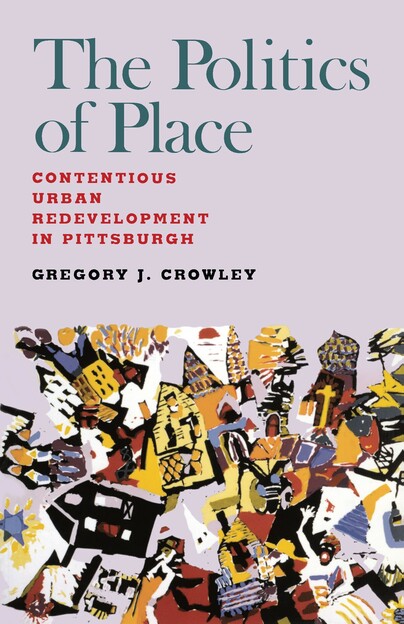
Format: Paperback
Pages: 224
ISBN: 9780822958901
Pub Date: 22 Nov 2005
Description:
In urban America, large-scale redevelopment is a frequent news item. Many proposals for such redevelopment are challenged—sometimes successfully, and other times to no avail. The Politics of Place considers the reasons for these outcomes by examining five cases of contentious redevelopment in Pittsburgh, Pennsylvania, between 1949 and 2000.
In four of these cases, the challengers to redevelopment failed to create the conditions necessary for strong democratic participation. In the fifth case—the proposed reconstruction of Pittsburgh’s downtown retail district (1997–2000)—challengers succeeded, and Crowley describes the crucial role of independent nonprofit organizations in bringing about this result. At the heart of Crowley’s discussion are questions central to any urban redevelopment debate: Who participates in urban redevelopment, what motivates them to do so, and what structures in the political process open or close a democratic dialogue among the stakeholders? Through his astute analysis, Crowley answers these questions and posits a framework through which to view future contention in urban redevelopment.

Format: Hardback
Pages: 168
ISBN: 9780822942689
Pub Date: 30 Oct 2005
Series: Drue Heinz Literature Prize
Description:
Between Camelots is about the struggle to forge relationships and the spaces that are left when that effort falls short. In the title story, a man at a backyard barbecue waits for a blind date who never shows up. He meets a stranger who advises him to give up the fight; to walk away from intimacy altogether and stop getting hurt.
The wisdom—or foolhardiness—of that approach is at the heart of each of these stories. In "I'll Be Home," a young man who has converted to Judaism goes home for Christmas in Miami, and finds that his desire to connect to his parents conflicts with his need to move on. "The Movements of the Body" introduces us to a woman who believes that she can control the disintegration of her life through a carefully measured balance of whiskey and mouthwash. These are stories about loss and fear, but also about the courage that drives us all to continue to reach out to the people around us.
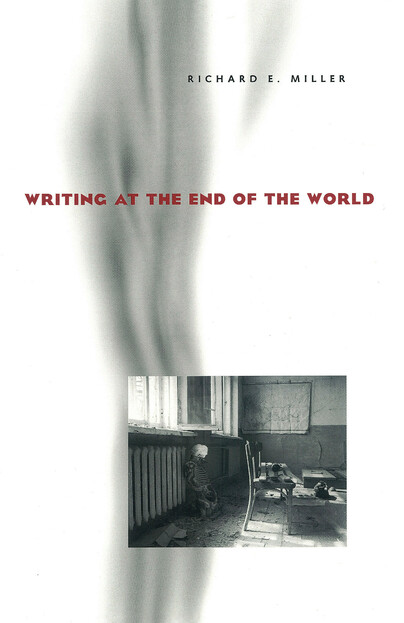
Format: Paperback
Pages: 248
ISBN: 9780822958864
Pub Date: 17 Oct 2005
Description:
What do the humanities have to offer in the twenty-first century? Are there compelling reasons to go on teaching the literate arts when the schools themselves have become battlefields? Does it make sense to go on writing when the world itself is overrun with books that no one reads?
In these simultaneously personal and erudite reflections on the future of higher education, Richard E. Miller moves from the headlines to the classroom, focusing in on how teachers and students alike confront the existential challenge of making life meaningful. In meditating on the violent events that now dominate our daily lives—school shootings, suicide bombings, terrorist attacks, contemporary warfare—Miller prompts a reconsideration of the role that institutions of higher education play in shaping our daily experiences, and asks us to reimagine the humanities as centrally important to the maintenance of a compassionate, secular society. By concentrating on those moments when individuals and institutions meet and violence results, Writing at the End of the World provides the framework that students and teachers require to engage in the work of building a better future.

Format: Paperback
Pages: 96
ISBN: 9780822958932
Pub Date: 15 Oct 2005
Description:
Winner of the 2004 Cave Canem Poetry PrizeThe poems in Eye of Water are derived from the narrator’s experiences in what she calls her “waking.” She traces inspiration to “the beginning of myth, to Eve in the Garden of Eden” and states: “We could spend our lives unraveling the mistake and discover that life was one great big ‘chore,’ and inescapable. And the path is full of missteps and accidents because we cannot (or prefer not to) remember all that got us to that moment.
My body seems to be a symptom of the past, so no matter who touches me, all the ghosts are waiting there. The ‘chore’ becomes how to survive despite the flaws of our humanness that makes us brutal at times.”
Luke Swank
Modernist Photographer
Format: Hardback
ISBN: 9780822942535
Pub Date: 10 Oct 2005
Description:
Luke Swank: Modernist Photographer reintroduces the work of an important artist who had been relegated to virtual anonymity after his untimely death in 1944. As both a biography of Swank (1890-1944) and an analysis of his work, the book focuses on his essential contribution to the modernist movement and positions Swank alongside contemporaries Edward Weston, Margaret Bourke-White, and Walker Evans. In 1930, at age forty, Luke Swank was selling cars in his hometown of Johnstown, Pennsylvania.
Just two years later, his five-part photo mural “Steel Plant” was featured in Murals by American Painters and Photographers, the first show at the Museum of Modern Art in New York to include photography. Although Swank’s images share stylistic similarities with many of the modernists, they also reveal his unique visual poetry. His compositional exploration, technical virtuousity, and use of intense highlight and shadow and geometric forms and lines affirm his contributions to the modernist movement and the emerging art of photography.

Format: Paperback
Pages: 256
ISBN: 9780822958840
Pub Date: 30 Sep 2005
Description:
The Task of the Interpreter offers a new approach to what it means to interpret a text, and reconciles the possibility of multiple interpretations with the need to consider the author’s intention. Vandevelde argues that interpretation is both an act and an event: It is an act in that interpreters, through the statements they make, implicitly commit themselves to justifying their positions, if prompted. It is an event in that interpreters are situated in a cultural and historical framework and come to a text with questions, concerns, and methods of which they are not fully conscious.
These two aspects make interpretation a negotiation of meaning. The Task of the Interpreter provides an interdisciplinary investigation of textual interpretation including biblical hermeneutics (Gregory the Great’s Homilies on Ezekiel), translation (Homer’s The Odyssey), and literary fictions (Grass’s Dog Years and Sabato’s On Heroes and Tombs). Vandevelde’s philosophical discussion will appeal to theorists of both continental and analytical/pragmatic traditions.
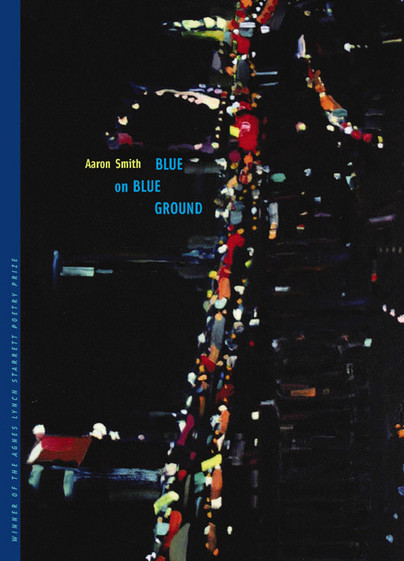
Format: Paperback
Pages: 96
ISBN: 9780822958888
Pub Date: 26 Sep 2005
Description:
Winner of the 2004 Agnes Lynch Starrett Poetry PrizeBlue on Blue Ground is about the body, desire, anxiety, and obsession—how what we want redeems and isolates us (and is sometimes used against us). These poems are artful yet accessible, lyrical yet direct, strange but recognizable.Smith’s relentless self-examination, fear, sense of humor, and vulnerability are all laid to bare in crisp, precise language.
From lonely observations, bizarre medical fascinations, emotion, loss, and honesty, Blue on Blue Ground constructs its internal and external worlds. The metaphorical city is also a “body,” a place of exile and restoration, a symbol of hope, a catalyst for connection. The urban landscape is often the background for the moment or is the moment itself—the world looked at and sorted into words.Though at times dark, there’s love to be found. Perhaps it’s what drives this collection, colors its observations, and leads it to finally announce: “Someone is putting the world back together.” Blue on Blue Ground wants to look at absolutely everything and believes that complete exploration of the physical and mental selves—fears and desires—is the key to moving and being completely alive in the material world.
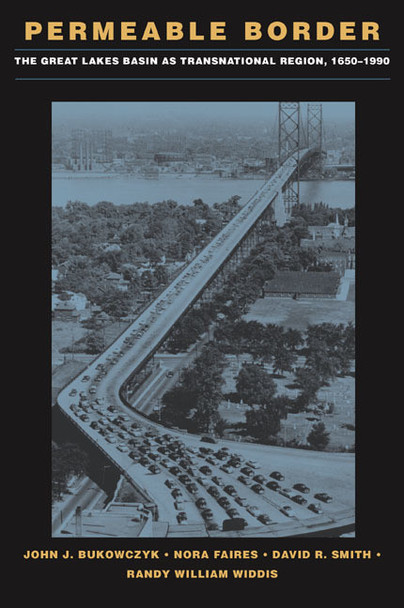
Format: Hardback
Pages: 312
ISBN: 9780822942610
Pub Date: 20 Sep 2005
Description:
From the colonial era of waterborne transport, through nineteenth-century changes in transportation and communication, to globalization, the history of the Great Lakes Basin has been shaped by the people, goods, and capital crossing and recrossing the U.S.-Canadian border.
��During the past three centuries, the region has been buffeted by efforts to benefit from or defeat economic and political integration and by the politics of imposing, tightening, or relaxing the bisecting international border. Where tariff policy was used in the early national period to open the border for agricultural goods, growing protectionism in both countries transformed the border into a bulwark against foreign competition after the 1860s. In the twentieth century, labor migration followed by multinational corporations fundamentally altered the customary pairing of capital and nation to that of capital versus nation, challenging the concept of international borders as key factors in national development. ��In tracing the economic development of the Great Lakes Basin as borderland and as transnational region, the authors of Permeable Border have provided a regional history that transcends national borders and makes vital connections between two national histories that are too often studied as wholly separate.

Format: Hardback
Pages: 364
ISBN: 9780822942641
Pub Date: 01 Sep 2005
Description:
Foreword by John B. Wilt, Colonel (Retired), U.S.
Airforce Reserve��Today, concerns over homeland security have led thousands of Americans to volunteer for various citizen emergency response groups, such as the Civil Air Patrol, U.
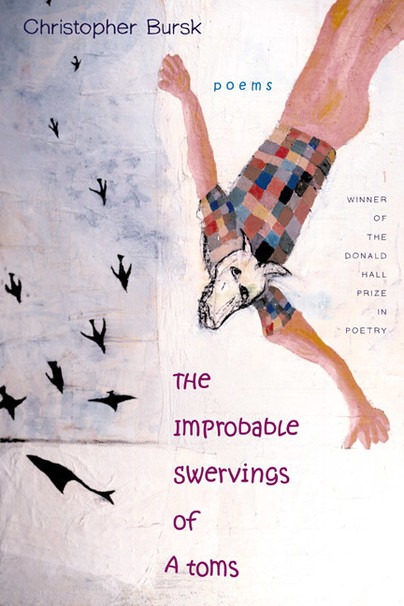
Format: Paperback
Pages: 104
ISBN: 9780822958895
Pub Date: 20 Aug 2005
Description:
Winner of the 2004 Donald Hall Prize in PoetryThe Improbable Swervings of Atoms follows the comedic, often painful, physical and emotional travails of a young boy growing up in 1950s America. He watches the McCarthy hearings, conquers the Congo, assassinates the president, has his head stuffed into a toilet, drops his uniform on the fifty-yard line, and tries to make sense of Lucretius’s De Rerum Natura. The poems engage history in a very intimate way, revealing how a boy, as he matures, attempts to understand the world around him, his own physical development, the people in his life, and what it means to live in a country and time where it is impossible to disengage oneself from world events—where, in fact, the quest for identity is an act that requires one to rewrite history in personal terms.
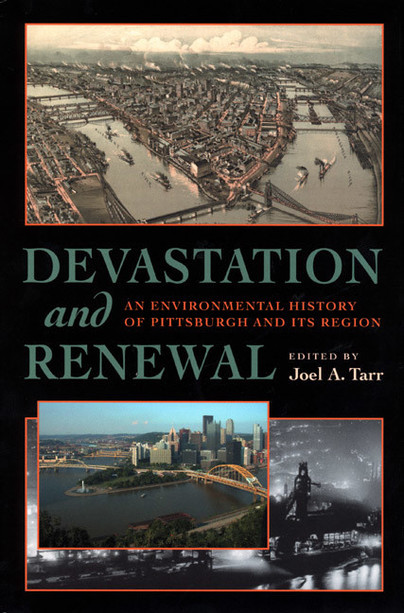
Format: Paperback
Pages: 312
ISBN: 9780822958925
Pub Date: 09 Aug 2005
Description:
Every city has an environmental story, perhaps none so dramatic as Pittsburgh's. Founded in a river valley blessed with enormous resources-three strong waterways, abundant forests, rich seams of coal-the city experienced a century of exploitation and industrialization that degraded and obscured the natural environment to a horrific degree. Pittsburgh came to be known as “the Smoky City,” or, as James Parton famously declared in 1866, “hell with the lid taken off.
”Then came the storied Renaissance in the years following World War II, when the city's public and private elites, abetted by technological advances, came together to improve the air and renew the built environment. Equally dramatic was the sweeping deindustrialization of Pittsburgh in the 1980s, when the collapse of the steel industry brought down the smokestacks, leaving vast tracks of brownfields and riverfront. Today Pittsburgh faces unprecedented opportunities to reverse the environmental degradation of its history. In Devastation and Renewal, scholars of the urban environment post questions that both complicate and enrich this story. Working from deep archival research, they ask not only what happened to Pittsburgh's environment, but why. What forces-economic, political, and cultural-were at work? In exploring the disturbing history of pollution in Pittsburgh, they consider not only the sooty skies, but also the poisoned rivers and creeks, the mined hills, and scarred land. Who profited and who paid for such “progress”? How did the environment Pittsburghers live in come to be, and how it can be managed for the future?In a provocative concluding essay, Samuel P. Hays explores Pittsburgh's “environmental culture,” the attitudes and institutions that interpret a city's story and work to create change. Comparing Pittsburgh to other cities and regions, he exposes exaggerations of Pittsburgh's environmental achievement and challenges the community to make real progress for the future. A landmark contribution to the emerging field of urban environmental history, Devastation and Renewal will be important to all students of cities, of cultures, and of the natural world.
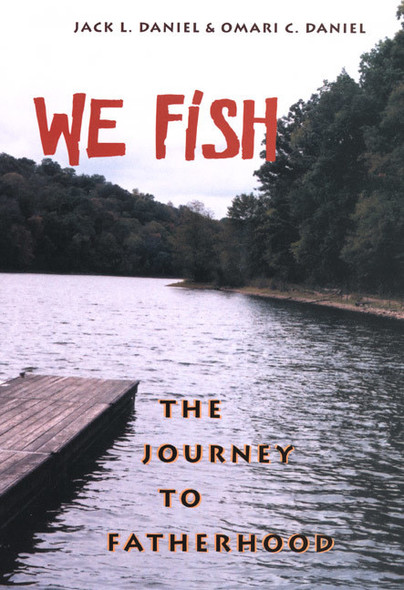
Format: Paperback
Pages: 216
ISBN: 9780822958918
Pub Date: 01 Aug 2005
Description:
We Fish is the tale of a father and son's shared dialogue in poetry and in prose, memoir and reflection, as they delight in their time spent fishing while considering the universal challenge of raising good children. Their story and their lesson have the power to teach today's young African American men about friendship, family, and trust; and the potential to save a generation from the dangers of the modern world and from themselves.
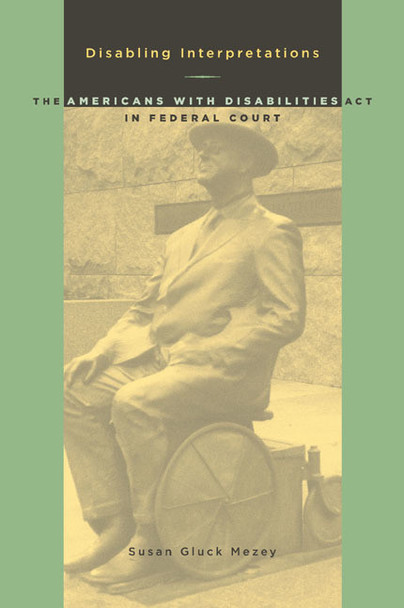
Format: Paperback
Pages: 248
ISBN: 9780822958796
Pub Date: 15 Jul 2005
Description:
The Americans with Disabilities Act (ADA) of 1990 was intended to send a clear message to society that discrimination on the basis of disability is unacceptable. As with most civil rights laws, the courts were given primary responsibility for implementing disability rights policy.Mezey argues that the act has not fulfilled its potential primarily because of the judiciary's \u0022disabling interpretations\u0022 in adjudicating ADA claims.
In the decade of litigation following the enactment of the ADA, judicial interpretation of the law has largely constricted the parameters of disability rights and excluded large numbers of claimants from the reach of the law. The Supreme Court has not interpreted the act broadly, as was intended by Congress, and this method of decision making was for the most part mirrored by the courts below. The high court's rulings to expand state sovereign immunity and insulate states from liability in damage suits has also caused claimants to become enmeshed in litigation and has encouraged defendants to challenge other laws affecting disability rights. Despite the law's strong civil rights rhetoric, disability rights remain an imperfectly realized goal.
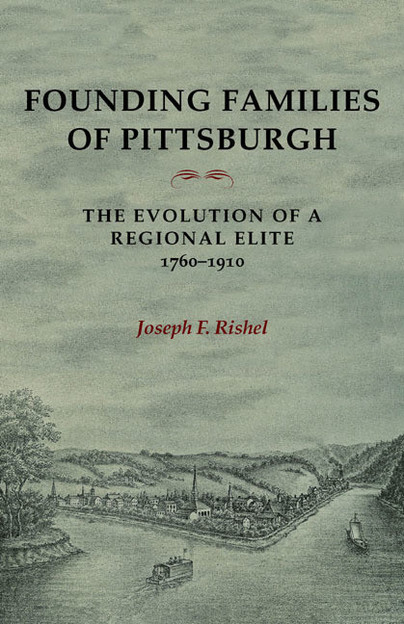
Format: Paperback
Pages: 260
ISBN: 9780822958789
Pub Date: 15 Jul 2005
Description:
As Pittsburgh and its surrounding area grew into an important commercial and industrial center, a group of families emerged who were distinguished by their wealth and social position. Joseph Rishel studies twenty of these families to determine the degree to which they formed a coherent upper class and the extent to which they were able to maintain their status over time. His analysis shows that Pittsburgh's elite upper class succeeded in creating the institutions needed to sustain a local aristocracy and possessed the ability to adapt its accumulated advantages to social and economic changes.
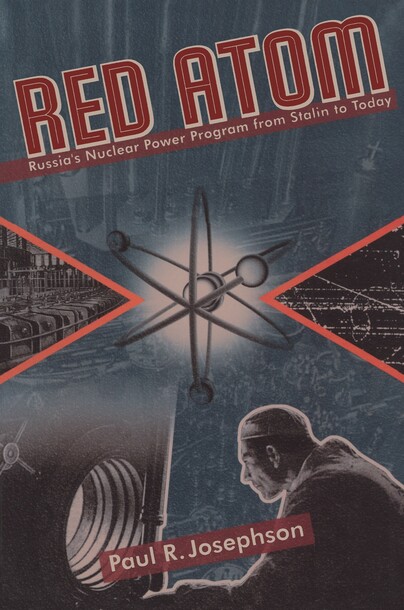
Format: Paperback
Pages: 352
ISBN: 9780822958819
Pub Date: 10 Jun 2005
Description:
In the 1950s, Soviet nuclear scientists and leaders imagined a stunning future when giant reactors would generate energy quickly and cheaply, nuclear engines would power cars, ships, and airplanes, and peaceful nuclear explosions would transform the landscape. Driven by the energy of the atom, the dream of communism would become a powerful reality. Thirty years later, that dream died in Chernobyl.
What went wrong? Based on exhaustive archival research and interviews, Red Atom takes a behind-the-scenes look at the history of the Soviet Union's peaceful use of nuclear power. It explores both the projects and the technocratic and political elite who were dedicated to increasing state power through technology. And it describes the political, economic, and environmental fallout of Chernobyl.

















